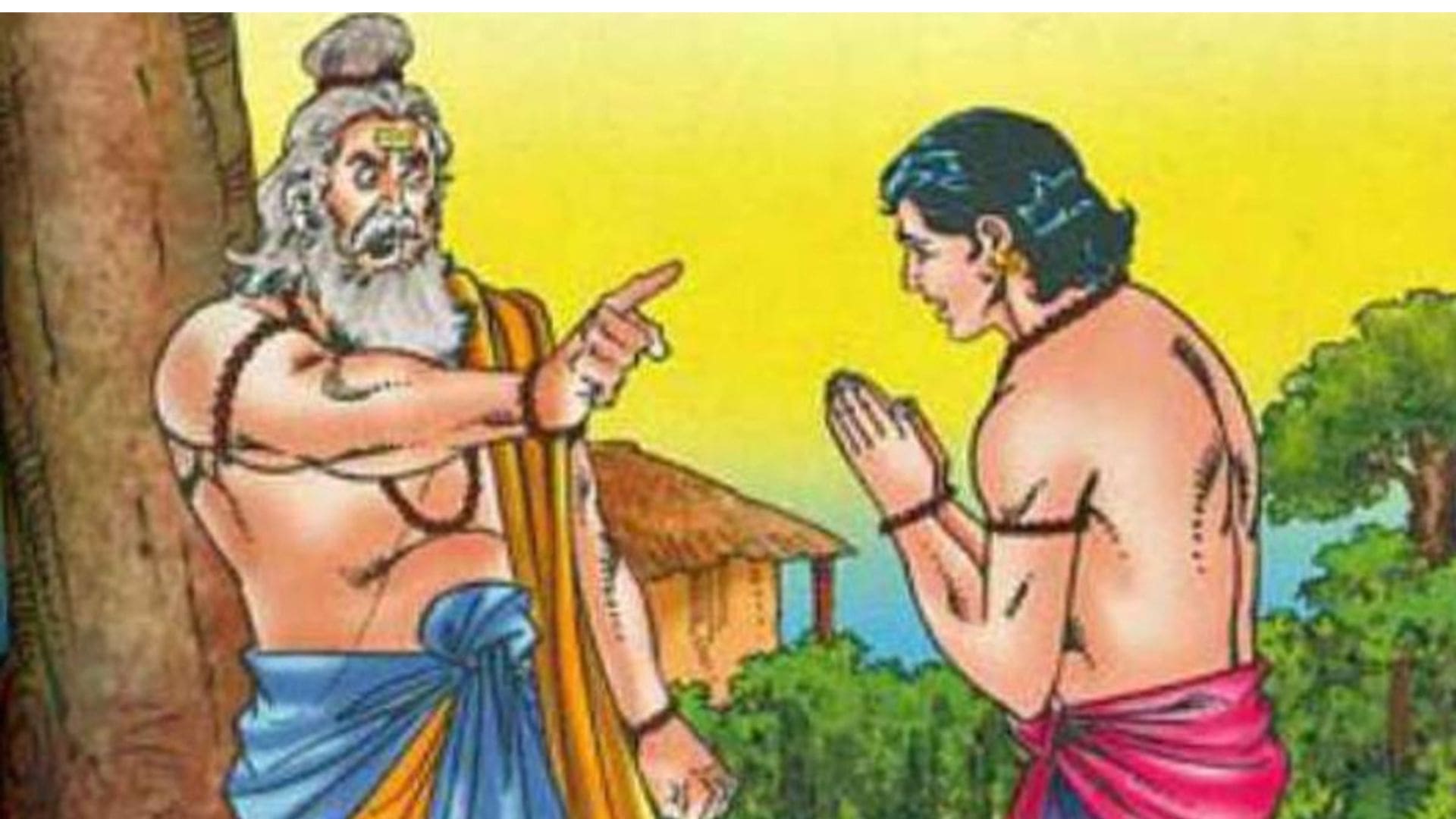
The Curse of Parshuram on Karna: Deceit and Consequences in the Mahabharata
Parshuram had taken a vow of not teaching to the Kshatriyas. He was never against Kshtriyas as a caste, but due to their Adharmic path, such as not fulfilling responsibilities of Kshtriya Dharm, being busy in enjoyments, drinks, and women, he killed all Adharmic Kshtriyas and took a vow of not providing any education to them.
Parshuram taught Bhishma even though he was a Kshtriya. This was because Bhishma was not a tyrant and was following his moral Dharma. And moreover, Parshuram was a Rishi and the incarnation of God, he could easily see that Bhishma was not an ordinary man, thus Parshuram liked him, broke his vow and accepted him as his pupil and taught him.
Karna disguised as branhim acquired siksha from Parashuram, which led to a great annoyment for Parashuram:
Karna was keen to acquire the Brahmastra mantra from the great teacher Parshuram. However, he knew that Parshuram gave instructions to Brahmins (the priestly tribe) only. So he disguised as a Brahmin and beseeched Parshuram to accept him as a shishya(disciple). Parshuram accepted him as such and started giving him instructions. One day when Parshuram was resting in Karnas lap, it so happened that a bee stung Karna on the lower portion of his thigh. It was very painful and he started bleeding. However, fearing that if he moved his legs, he would awaken Parshuram, he did not move at all and continued to suffer. When Parshuram woke up, he saw Karna bleeding. He asked, Son, tell me truthfully who you are? A Brahmin cannot suffer so much physical pain. Only a kshattriya (the warrior tribe) can endure so much discomfort. Karna was obliged to disclose his identity. Parshuram was greatly annoyed because he was a sworn enemy of Kshattriyas. He therefore cursed Karna that as he had learnt through deceit, he shall forget the vidya (skill) which Parshuram had taught him at the crucial juncture.
Similar Stories
Discover the fascinating story behind the transcription of the Mahabharata! Learn how Ved Vyasa composed the epic while Lord Ganesha served as the scribe, under unique conditions that tested their intellect and wisdom. A timeless tale of creativity and collaboration from Indian mythology.
Explore the fascinating tale of Goddess Ekanamsha, also known as Devi Yogamaya, from the *Harivamsa* of the *Mahabharata*. Learn how she was born as Yashoda’s daughter, exchanged with Lord Krishna to protect him from Kamsa, and later revealed her divine form. Discover her prophecy to destroy the asuras Shumbha and Nishumbha in the Vindhya mountains, her connection to the Yadavas in Dwaraka, and her significance as the goddess of protection and transformation. Ekanamsha embodies the unbroken ...
In this captivating tale from the Mahabharata, Draupadi's desire for fragrant lotus flowers leads Bhima on a perilous journey to the Himalayas. Along the way, his path is blocked by none other than Hanuman, his elder brother by divine heritage. This encounter between two mighty sons of Vayu teaches Bhima the importance of humility and respect. Discover how Hanuman guides Bhima to a pond guarded by fearsome demons, revealing profound lessons of strength, wisdom, and familial bonds.
Astrology, Mantras, Events, Stories & More.
